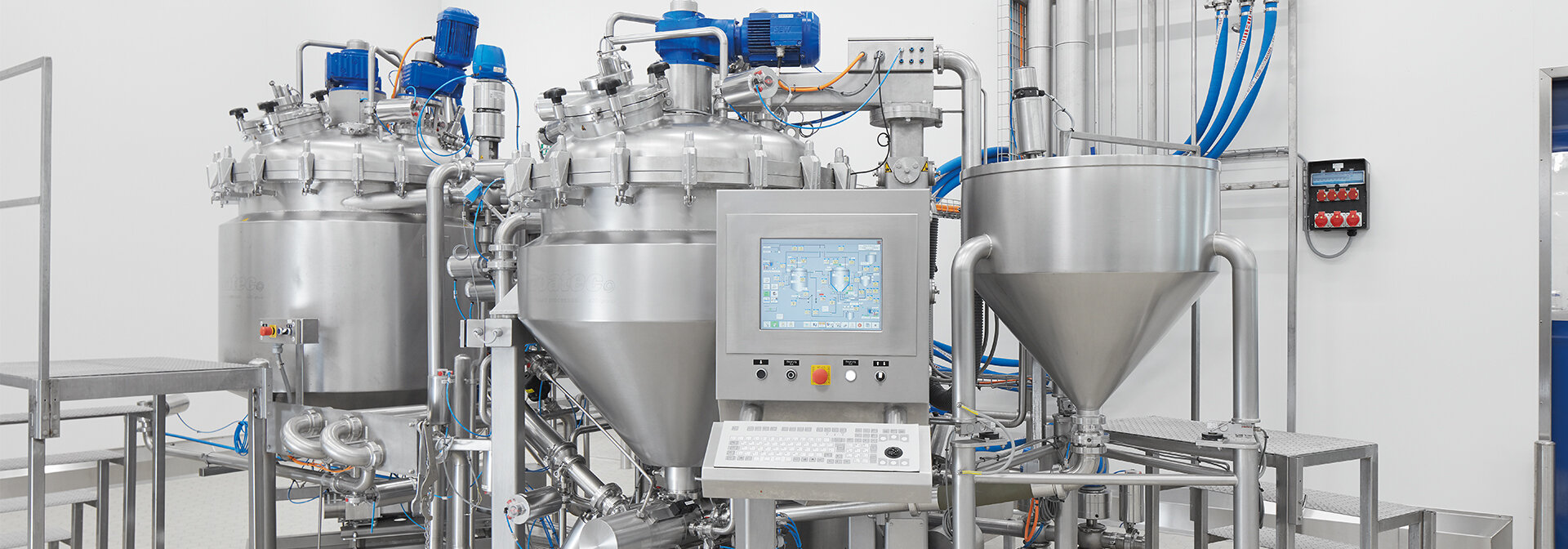
No risks, no trouble
Why integrated process control systems are vital in food processing.
It may seem like a banal statement, but in the end, industrial food processing is all about generating quality. The final product must be of the highest quality – if not, it will either be rejected by the producer or by the consumer. So, as a manufacturer, you must make use of the best possibilities to keep your production running at the best quality level.
At AZO LIQUIDS, we share your goals. We know how vital it is to fulfill or exceed quality standards, as it’s our own guideline. AZO LIQUIDS’ Zoamatic controls help our customers at different stages to minimize any possible risk. Early detection of potential hazards enables prompt corrective actions, safeguarding consumers from foodborne illnesses and upholding the reputation of the brand. And then there’s the regulatory aspect.
Avoiding legal repercussions
Compliance with regulatory standards is non-negotiable in the food industry. Internal quality control mechanisms facilitate adherence to stringent regulations set forth by national or international governmental agencies such as the European Food Safety Authority (EFSA) or the Food and Drug Administration (FDA). By consistently monitoring critical control points (CCPs) in the production process, manufacturers can ensure that their products meet the required standards for hygiene and labelling, thus avoiding penalties and legal repercussions.
Consistency in product quality
Maintaining consistency in product quality is essential for building consumer trust and loyalty. You don’t want your product to taste different every time you start another batch. AZO LIQUIDS’ Zoamatic control systems allow a fully automatic recipe operation mode, where entire batches or partial quantities are produced completely autonomously in accordance with your defined formulations. By closely monitoring parameters such as taste, texture,
color, and nutritional content, we can ensure that every product meets its expectations. This consistency fosters brand recognition and enhances customer satisfaction, as consumers can rely on the uniformity of the product they purchase.
Eliminating the biggest threats
AZO LIQUIDS’ Zoamatic control takes on the biggest internal threats when processing fluid or semi-fluid ingredients: contamination, microbial growth, spoilage, equipment malfunction, and regulatory non-compliance. Contamination an occur from pathogens, such as bacteria, viruses, mold, and other fungal infections. All of these can trigger serious health issues. Spoilage, often caused by microbial growth or chemical reactions, might degrade product quality and impact shelf life. Equipment malfunction, including pumps, motors, mixers, and heat exchangers, can lead to inconsistent processing, causing safety hazards and even production delays. As stated before, regulatory non-compliance may result in fines, product recalls, and can damage your brand reputation. An internal control system won’t just help you to avoid risks; it offers more than that. It will not only affect the amount of energy and other resources you use up but also help you streamline your production process.
Reduction of waste and cost
Efficient internal quality control systems will significantly reduce waste and production costs. By identifying and rectifying deviations from the desired quality standards or formula early in the process, manufacturers can prevent the production of wrong, substandard, or non-compliant goods, thereby minimizing material wastage and reducing the need for rework. Moreover, streamlining the production process through effective quality control measures leads to enhanced operational efficiency and results in cost savings in the long run.
Improving the supply chain management
Integrated process control systems like AZO LIQUIDS’ Zoamatic control don’t work only one way. Quality monitoring extends beyond the production unit and encompasses the entire supply chain. By establishing robust quality assurance protocols, manufacturers can ensure the integrity of raw materials and ingredients sourced from suppliers at any point during manufacturing. This proactive approach minimizes the risk of receiving wrong or
contaminated inputs. By maintaining comprehensive records of quality assessments at each stage of the supply chain, companies can trace and address quality issues more effectively. In addition, data gained continuously at various stages of production will help improve the manufacturing process. This data-driven approach enables informed decision-making and facilitates the implementation of targeted improvements aimed at enhancing product quality, operational efficiency, and overall performance.
It’s all about the customer
Even if food manufacturers eliminate every risk and comply with the valid regulatory standards, in the end, it’s the customer’s taste and expectations that count. Whether it's organic, gluten-free, vegan, or made from sustainably sourced options, the primary goal of internal quality control is to meet these goals. By implementing robust quality control measures like AZO LIQUIDS’ Zoamatic control across the production process, manufacturers can safeguard their reputation, minimize risk, optimize efficiency, and finally, deliver high-quality products that meet the needs and expectations of today's discerning consumers. That’s why internal quality control is vital.